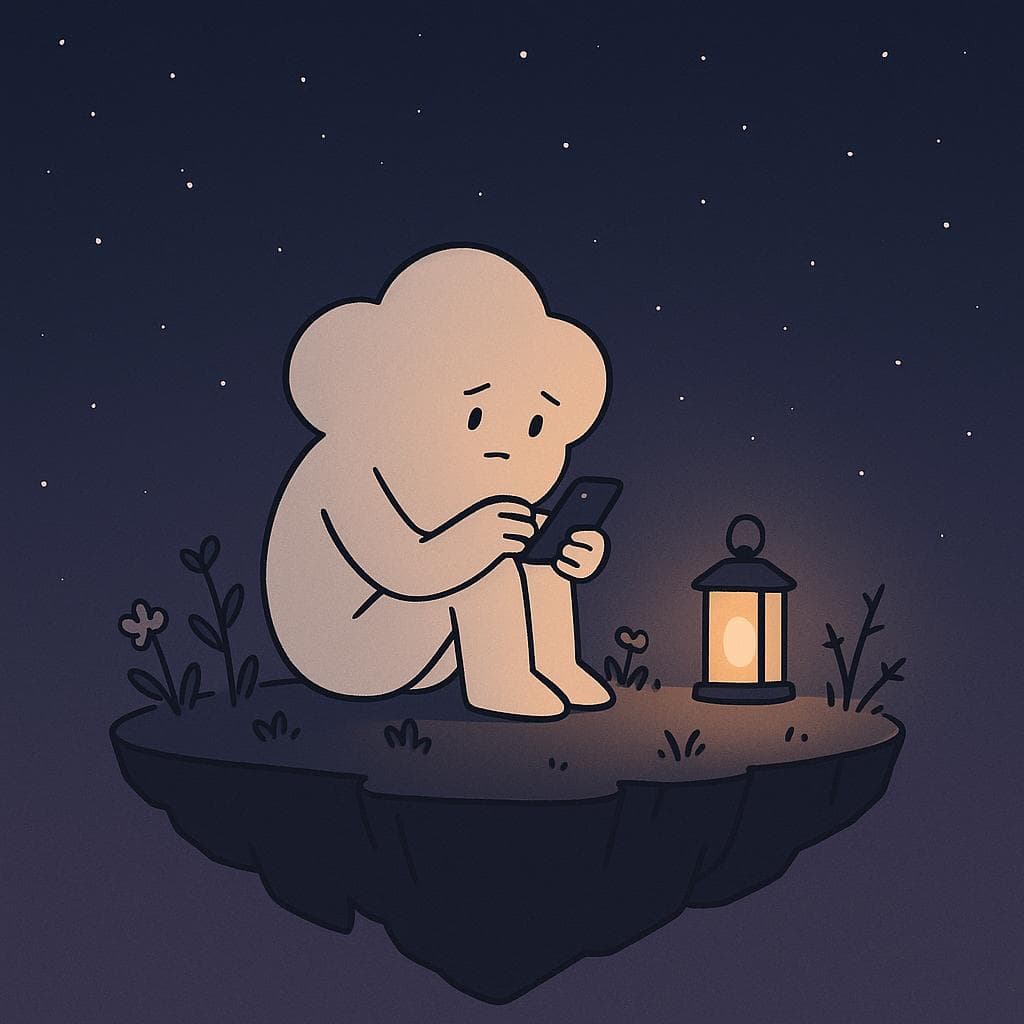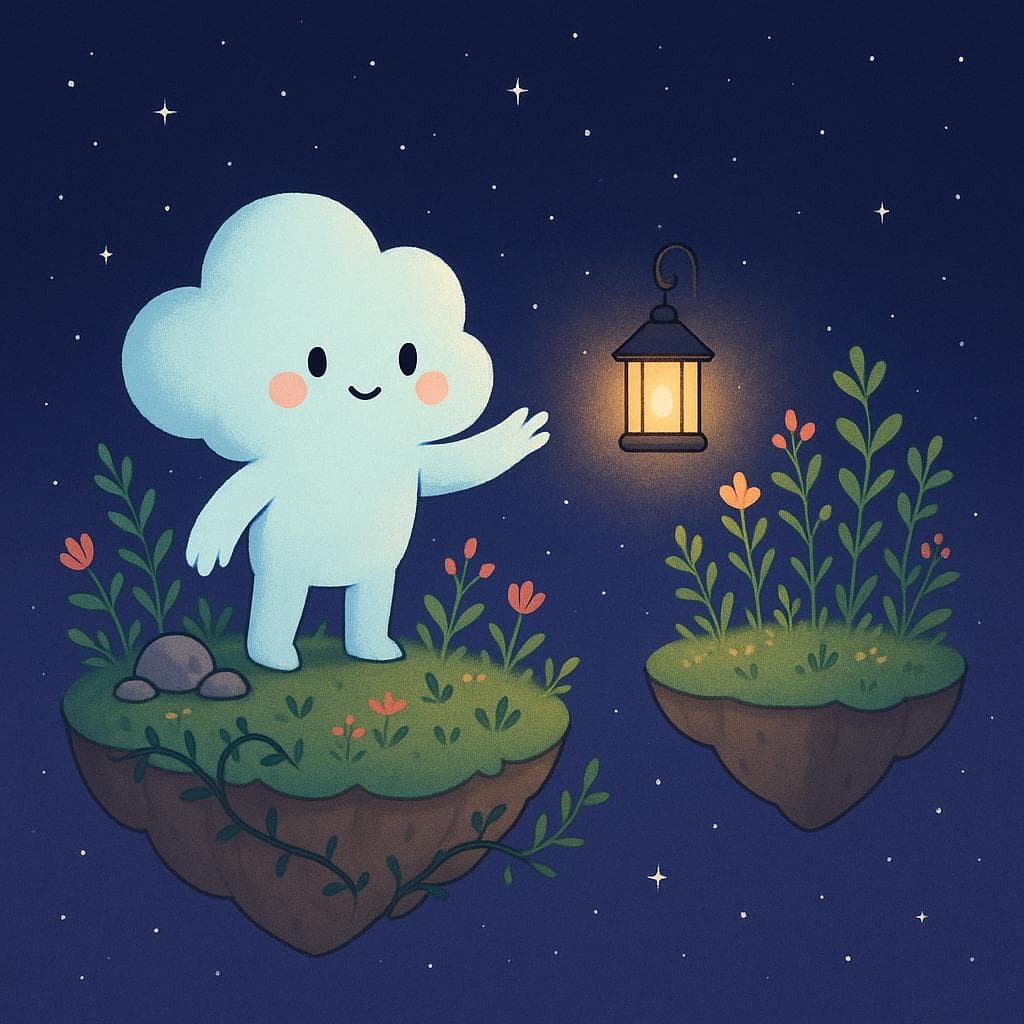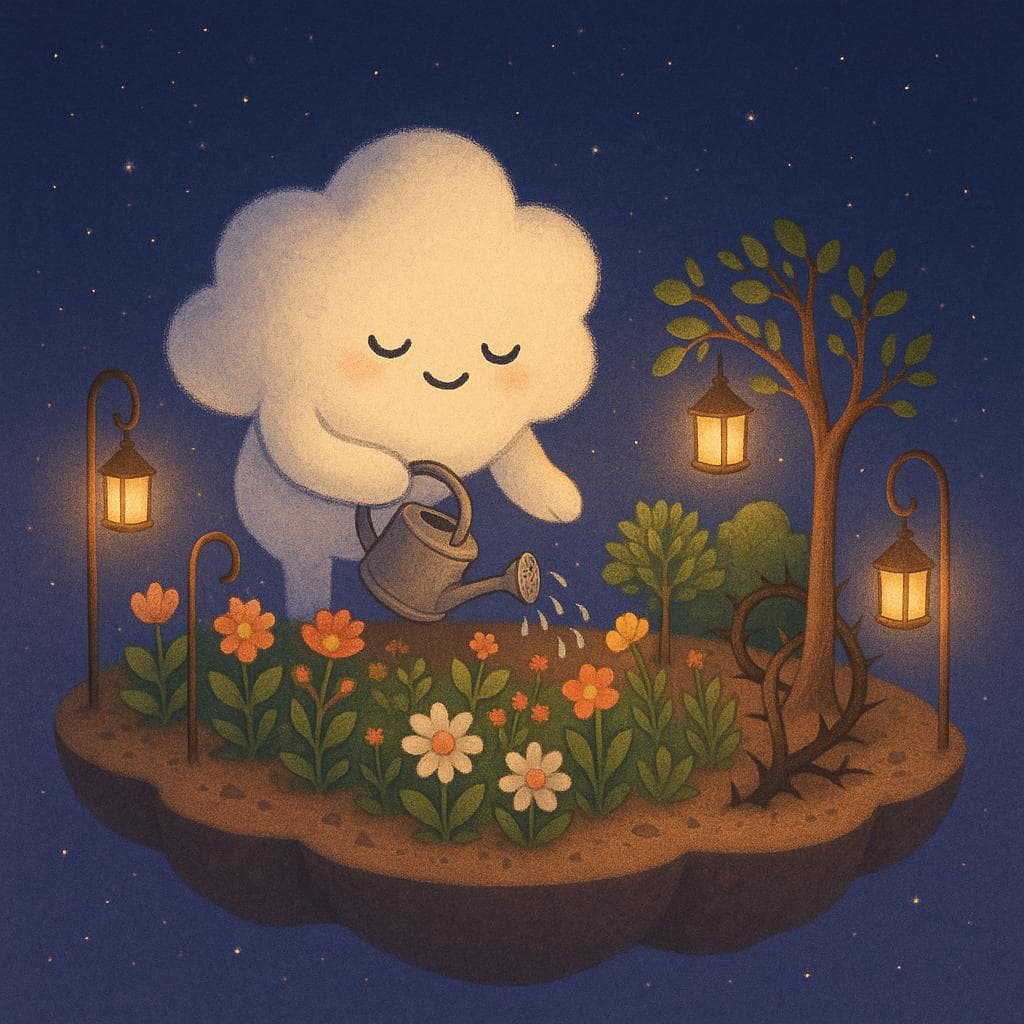How to Ask for Help When You've Always Been Independent
If you’ve always been the “I’ve got it” friend, asking for help can feel weirdly…dangerous.
You’d rather pull an all-nighter, Google 47 solutions, and emotionally implode in private than send one “hey, can we talk?” text.
Independence gets praised hard in school, at home, and online. But nobody really teaches you how to switch out of “I’m fine, I’ll handle it” when you’re actually not fine and not handling it.
This guide is for that moment: when you’re anxious, exhausted, or stuck in low mood, and your brain is still yelling, “Don’t bother anyone. You should be able to do this alone.”
You don’t have to flip into being a totally different person. You just need a few gentle, realistic ways to let people in—on your terms.
Key Takeaways:
✓ Independence is a strength, but it can turn into isolation when you feel like you’re “not allowed” to need support
✓ Your brain might resist asking for help because of old rules (family roles, culture, past experiences), not because you’re actually a burden
✓ You can practice asking for help in tiny, low-stakes ways first—like asking for information, company, or a small favor
✓ Scripts, text templates, and “menu options” for support make reaching out way easier when your anxiety is loud
✓ If you can’t afford therapy or don’t have access to it, tools like a wellness app, campus resources, and trusted people can still form a real support system

Why Asking for Help Feels So Uncomfortable When You’re “The Independent One”
You’re not dramatic for struggling with this. There are actual reasons your body tenses up when you even think about asking for help.
The invisible rules you grew up with
A lot of us learned unspoken rules like:
- “Don’t make things harder for anyone.”
- “Other people have it worse, so don’t complain.”
- “If you want something done right, do it yourself.”
- “You’re the responsible one.”
Maybe you were the oldest sibling, the “gifted kid,” the kid with a parent who was already overwhelmed. Being low-maintenance became your survival strategy.
So now, even when anxiety is wrecking your focus or low mood makes everything feel heavy, your brain still runs those old rules:
- “You should be able to handle this.”
- “Don’t be needy.”
- “If you ask for help, they’ll see you differently.”
Those thoughts feel like facts. They’re not. They’re habits.
Independence vs. isolation
Being independent is not the problem. Independence is a strength.
The problem is when independence quietly turns into isolation:
| Healthy Independence | Quiet Isolation |
|---|---|
| “I can do a lot on my own and ask for help.” | “If I can’t do it alone, I’m failing.” |
| Choosing when you want support | Feeling like support is never an option |
| Sharing struggles with a few safe people | Telling no one until you fully burn out |
| Resting without guilt | Pushing until your body forces you to stop |
If you’re noticing more isolation than choice, that’s not you “being dramatic.” It’s a sign your nervous system is overworking.
You’re not the only one quietly struggling
Stats back this up: in 2023, about 33.8% of U.S. young adults aged 18–25 had some kind of emotional or behavioural condition in the past year, and only about half of them got any treatment at all (SAMHSA, 2024).
So many people are struggling—but a lot of that happens in silence, especially for the “strong” friend.
You’re not weird for needing help. You’re just human in a system that tells you to pretend you’re a robot.
What’s Actually Going On in Your Brain When You Avoid Asking
Understanding what’s happening inside your brain makes this feel less like “I’m broken” and more like “oh, this is a pattern.”
Anxiety: The “danger” siren
When you even consider texting someone for support, anxiety might show up like:
- Racing heart or tight chest
- Overthinking every possible response
- Imagining someone rolling their eyes at your message
That’s your nervous system treating “asking for help” like a threat.
If you grew up in a place where emotions were dismissed, mocked, or ignored, your brain learned: “Reaching out = danger.” So now, even safe people can trigger that old alarm.
ADHD: Out of sight, out of support
If you have ADHD, there’s another layer:
- You forget to reply when people do check in
- You mean to ask for help…but then 3 weeks pass
- Tasks feel overwhelming, but you can’t explain why, so you stay quiet
ADHD brains are great at surviving chaos alone, not so great at slow, planned emotional conversations. That doesn’t mean you don’t need help—it just means you need systems that work with your brain, not against it.
Low mood: “What’s the point?”
Low mood often brings thoughts like:
- “They’re tired of hearing this.”
- “Nothing will actually change.”
- “I’ll just drag everyone down.”
These thoughts are classic symptoms of low mood, not accurate predictions. They’re like fog on a window—you see the world through them, but they’re not the world itself.
Step 1: Notice the Stories Your Brain Tells About Asking for Help
Before you try to change anything, you need to see what’s already running in the background.
Do a quick “brain script” check
Take 60 seconds and finish one or two of these sentences in your notes app:
- “If I ask for help, people will think I’m ___.”
- “Growing up, needing help meant ___.”
- “The last time I asked for help, what happened was ___.”
You don’t need to fix the answers. Just notice them.
This is a tiny version of a CBT skill called “cognitive restructuring,” which research shows is helpful for anxiety in young people (APA/CBT practice guides, 2022–2025). You’re not doing therapy; you’re just gently pulling your thoughts into the light.
Separate facts from fear
Try this mini-table:
| Thought | Fact-check question |
|---|---|
| “I’m a burden.” | Has anyone actually said that to you? |
| “They’ll be mad I reached out.” | When has that happened before, specifically? |
| “They have their own problems; I shouldn’t.” | Do you get mad when friends ask you for support? |
| “I should handle this on my own.” | Who decided that? Is that rule helping you today? |
You’re not trying to argue with your brain, just poking gentle holes in its most dramatic claims.
Step 2: Start with Tiny, Low-Stakes Requests
If full-on emotional vulnerability feels impossible, don’t start there. Start with “micro help.”
Types of help that feel less scary
Not all help is “pour your heart out and cry.” Try these smaller categories:
-
Information help
- “Hey, do you know where to find the assignment rubric?”
- “Have you ever used campus counseling? How does it work?”
- “What do you usually do when you can’t focus?”
-
Logistical help
- “Can you send me the notes from class?”
- “Can we study on Zoom together so I don’t drift off?”
- “Can you remind me about our group project on Thursday?”
-
Presence help
- “Can we be on call while we both do our own thing?”
- “Want to sit in the library with me while I work?”
- “Can you just hang out in my room while I clean?”
-
Emotional check-in (lite version)
- “My brain is loud today, can I vent for like 5 minutes?”
- “I don’t need advice, just someone to listen—are you up for that?”
You’re still independent. You’re just letting someone sit on the bench next to you while you deal with your stuff.
Tiny actions you can try today
Pick one of these that feels least terrifying:
-
Send a non-scary text
- “Hey, how’s your week going?”
- Then, if it feels okay: “I’ve been a bit overwhelmed, could we call later?”
-
Ask one small favor
- “If you’re going to the dining hall, can you text me? I’m trying not to eat alone today.”
-
Use a “body double” for focus
Especially if you have ADHD, ask a friend to video call and just exist while you both work. It’s a legit ADHD focus strategy that many people find helpful. -
Practice with someone safer
If human people feel too intense, start with a professor’s office hours, a TA, or even a campus librarian. Asking for info help builds the “reaching out” muscle.
Tools like a wellness app for college students can also be a lower-stakes way to start opening up. With something like Melo Cares, you can log how you’re feeling in a mood journal or daily check-in first, then use that as a script when you talk to someone: “I’ve been tracking my days and noticing I’m anxious most mornings.”
Step 3: Use Scripts So You Don’t Have to Improvise While Anxious
When you’re overwhelmed, your brain is not in “craft the perfect text” mode. It’s in “everything is on fire” mode.
Pre-made scripts = less panic, more action.

Text templates for different levels of sharing
Level 1: Light check-in (low vulnerability)
- “Hey, can we study together later? My focus is wrecked today.”
- “Random question: what do you do when your brain won’t shut up about school stuff?”
Level 2: Naming the struggle (medium vulnerability)
- “I’ve been more anxious than usual lately and it’s messing with my sleep. Can I vent for a bit?”
- “My mood’s been pretty low and I’m having trouble getting things done. Could we talk sometime this week?”
Level 3: Asking for specific support (higher vulnerability)
- “I’m kind of overwhelmed and I don’t really know what I need, but could you just listen for a few minutes?”
- “Could you check in with me tomorrow about that assignment? I’m worried I’ll freeze and avoid it.”
You can literally copy-paste these into your notes app so they’re ready when your brain is too tired to word things nicely.
How to set boundaries while asking for help
You’re allowed to ask for help and still have limits. Try adding:
- “I don’t need advice right now, just someone to listen.”
- “If you don’t have the energy, that’s okay—just wanted to ask.”
- “Can we talk for like 15 minutes? Then I need to log off and rest.”
This protects both you and them. It also proves to your anxiety that you’re not “too much”—you’re being thoughtful and clear.
Step 4: Build a Tiny “Support Menu” So You’re Not Relying on One Person
Putting all your emotional weight on one friend or partner is stressful—for you and them. A better move: create a support menu.
Your support menu might include:
-
People
- One or two friends who “get it”
- A family member who’s decent at listening
- A professor, advisor, RA, or coach you trust
-
Places & resources
- Campus counseling center (even if you’re nervous, it’s there)
- Identity-based orgs or cultural centers
- Group spaces like clubs, study groups, or faith communities
-
Tools & therapy alternatives
- A wellness app for students with mood journaling or a habit tracker
- Online CBT-based resources (we break some down in this CBT techniques guide)
- Free or low-cost support groups in your area or online
If you can’t afford therapy or don’t have insurance, you’re not out of options. Many students never use campus counseling even though it’s included in their fees—national surveys show about two-thirds of college students don’t use campus wellness resources at all (American Psychiatric Association, 2023).
You’re allowed to be the one who actually uses them.
Apps like Melo Cares can fit into this menu as a gentle, always-there companion—part wellness tracker, part self-care game. You can plant tiny actions (like “drink water,” “text a friend,” “step outside for 2 minutes”) and watch your virtual garden grow, so you can see your progress even when your brain forgets it.
Step 5: When You’re Afraid of Being “Too Much”
A lot of independent people are secretly carrying this fear: “If someone sees all of this, they’ll leave.”
Let’s gently challenge that.
What if your roles were reversed?
Imagine your favorite person texted you:
“Hey, my anxiety has been really bad and I don’t know what to do. Can I talk to you?”
Would you think:
- “Wow, what a burden,”
or - “I’m glad they trusted me. How can I be there for them without burning myself out?”
Most of us are way kinder to others than we are to ourselves. Let your brain see that.
You’re not asking people to fix you
Support is not:
- “Please solve my life.”
- “Please be my therapist.”
- “Please never have boundaries.”
Support is:
- “Can you stand next to me while I go through this?”
- “Can you help me see options I can’t see right now?”
- “Can you remind me I’m not alone in this?”
You’re not broken, so you don’t need “fixing.” You’re just overloaded, and humans are not meant to carry everything solo.
Step 6: Practicing Asking for Help in Everyday Life
You don’t have to wait for a full emotional meltdown to practice this skill. You can build it into your daily routine in tiny ways.
Micro-practices you can sprinkle through your week
Try one of these per day:
-
Ask a classmate a small question
Even if you already know the answer. You’re practicing the act of asking. -
Let someone go first or hold a door
Then notice: the world didn’t collapse when you slightly interacted with a stranger. Social contact doesn’t have to be scary-big. -
Tell one person a 10% more honest answer
When someone asks, “How are you?” upgrade from “fine” to:- “Honestly, a little overwhelmed, but I’m hanging in.”
You don’t have to say everything, just a bit more truth.
- “Honestly, a little overwhelmed, but I’m hanging in.”
-
Use a daily check-in
Do a quick mood check in a notebook or app. Over time, you’ll see patterns: “I always feel worse before that 8am class,” or “Group projects spike my anxiety.” That info makes it easier to ask for the right kind of help.
If you want a structured way to do this, our post on building a self-care routine that actually works breaks down micro-steps that fit into “I have no energy” days.
Step 7: How to Ask for Help from Different Types of People
Not every ask works for every person. Matching the request to the relationship makes everything smoother.
Friends
Best for: emotional support, distraction, shared experiences.
Example scripts:
- “Can we do something low-key this weekend? My mood’s been weird and I’d love a chill hang.”
- “Can I send you a voice note later? Talking out loud helps me process.”
Family
This can be complicated. Use them for what they’re actually good at, not what you wish they were good at.
- If they’re practical: “Can you help me figure out a plan for my finances this month?”
- If they’re warm but not great with advice: “Can you just remind me that you’re proud of me? I’m doubting myself a lot lately.”
Professors / Advisors
Best for: academic flexibility, clarity, realistic expectations.
- “I’ve been dealing with some wellness challenges and it’s affecting my focus. Could we talk about a possible extension or how to prioritize what’s most important?”
- “I’m struggling to keep up with readings. Do you have suggestions for what to focus on first?”
Campus counseling or support services
Best for: structured help, coping strategies, referrals.
You don’t need a perfect story. You can literally say:
- “I’m not sure how to explain this, but my anxiety and low mood have been getting worse and I don’t want to wait until it’s a full crisis.”
- “I’m here because I’ve always handled things alone, and it’s not working anymore.”
College surveys show over 60% of students meet criteria for at least one emotional or behavioural challenge in a given year (APA, 2022), but many never walk into counseling. You’re not “extra” for going—you’re just using the resources you’re already paying for.
Step 8: When You’re Broke, Busy, or Can’t Get Traditional Therapy
A lot of wellness advice assumes you can just…start therapy tomorrow. That’s not real life for many students.
If you can’t afford therapy, don’t have insurance, or waitlists are wild, here are some therapy alternatives that still count as real support:
Low-cost or free options
- Campus counseling (often free or included in tuition)
- Short-term workshops or groups on anxiety, low mood, or stress
- Peer support spaces run by students or orgs
- Online CBT-based programs for anxiety and low mood—research shows digital CBT can help reduce anxiety symptoms in young people (Csirmaz et al., 2024)
Self-guided tools that actually help
You can build your own mini-support system:
| Tool / Practice | How it helps when you’re independent |
|---|---|
| Mood journal | Lets you see patterns without oversharing |
| Habit tracker | Turns tiny coping skills into visible progress |
| Daily wellness check-in | Quick way to ask, “What do I need today?” |
| Breathing / grounding tools | Helps when anxiety hits and you’re alone |
A cute wellness app like Melo Cares combines these: mood journaling, habit tracking, daily self-care prompts, and a garden that grows as you tend to yourself. It’s not therapy, but it is a gentle way to stay connected to your own needs and notice when it might be time to ask humans for more support.
For more ideas, you can check out our post on therapy alternatives when you can’t afford traditional support and how to stretch campus resources in a way that works for you.

Putting It All Together: Turning “I’m Fine” into “I Could Use a Hand”
Let’s zoom out.
Asking for help when you’ve always been independent is not about becoming a totally different person. It’s about adding one new skill to your toolbox.
In summary:
- Your resistance to asking for help usually comes from old rules and survival strategies, not from you being “too much.”
- Anxiety, ADHD, and low mood all mess with your ability to reach out—and knowing that makes it less personal.
- You can start with tiny requests: information, presence, small favors, light emotional check-ins.
- Scripts, support menus, and daily check-ins make asking for help way easier, especially when your brain is tired.
- Even if you can’t access therapy right now, you still deserve—and can build—real support.
One tiny next step
Before you close this tab, pick one of these:
- Copy one text script from this article into your notes app.
- Write one sentence: “Asking for help feels hard because ___.”
- Open your calendar and block a 15-minute window this week labeled “Reach out to someone.”
- If you’re using a wellness app or journal, log how you’re feeling right now in one line.
That’s it. That’s your seed for today.
You don’t have to go from “I do everything alone” to “I’m an open book” overnight. You’re just learning how to let a little more light into your garden, one small opening at a time.
You’re allowed to be strong and supported. You’re allowed to tend to yourself—and let others help water the soil sometimes, too.
This article is for general information and support only and isn’t a substitute for professional care. If your anxiety, low mood, or other difficult feelings are making it hard to function day-to-day, consider reaching out to a counselor, therapist, or another trusted professional for more personalized help.
